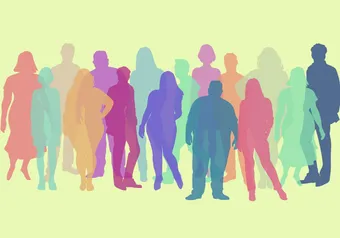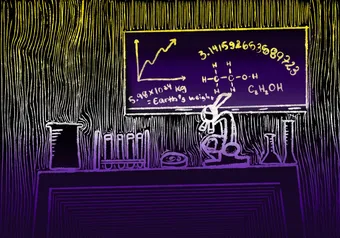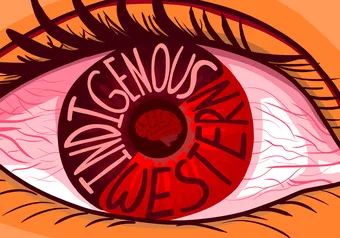Typhoon Rai, also known as Super Typhoon Odette, wreaked havoc across the Philippines in December 2021, leaving the country and UBC’s Filipino community grappling with disaster.
Two UBC Filipino student groups, Sulong and Kababayan, spearheaded fundraising efforts to support the Philippines in the aftermath. When interviewed by The Ubyssey, students from both associations described the devastation from this natural disaster as a symptom of a greater range of political, public health and environmental issues the Philippines faces.
According to Jaiden Casapao, vice-president of communications of UBC Kababayan, Typhoon Rai came alongside stress brought on by the novel coronavirus and other systemic problems.
“A lot of our family in the Philippines is affected by [the Omicron variant], as well as the typhoon,” Casapao said. “There’s of course a lot of problems that a lot of our families and especially Filipinos in general have struggled with.”
When disaster strikes
According to a United Nations report, Typhoon Rai displaced over 12,000 people and damaged 2.1 million houses. Global News reported that over 400 people died and over 1,000 people were injured due to the natural catastrophe.
A workshop hosted by Sulong UBC in March discussed the vulnerability of the Filipino people to natural disasters as the result of a complex “class triangle.”
The majority of the Filipino people belong to the “peasant” and working classes, according to the webinar. Sulong Finance Officer and Secretary General of Anakbayan Canada Isa Carlin said in the webinar that this social dynamic alongside “massive corruption” in the Philippines’ government make Filipinos more vulnerable to natural disasters.
“The people whose job it is to provide that relief [and] funding don’t do it,” they said.
According to Sulong Political and Solidarity Officer Justin Huynh, the Spanish colonial history as well as the US imperialist systems in place in the Philippines also play a role in this increased susceptibility of the Filipino people to natural disasters. On one webinar powerpoint slide, the words “the Philippines is rich but its people are poor” stood out from the rest.
“Going back to Typhoon Odette, you would think that there would be some fund set aside by the government, right? To support the people that are suffering as a result of the typhoon,” said Huynh. “There’s supposed to be 20 billion pesos, which is about 450 million Canadian dollars, set aside specifically for disaster relief — and no one knows where that money’s gone.”
They explained that though the Philippines has borrowed extensive funds from the World Bank, this was not reflected in typhoon relief. The government of the Philippines pointed to COVID-19 pandemic expenses as the cause for having limited funds available for disaster relief, but it signed an arms deal in February that cost 32 billion pesos — more than the promised fund for supporting relief efforts.
To support the Philippines in the aftermath of Typhoon Rai, Sulong UBC put out a call supporting Migrante Canada’s relief fund on social media, while UBC Kababayan created a GoFundMe campaign. In total, Kababayan raised over $400. The proceeds of Kababayan’s fundraiser were donated to three nonprofit organisations — Tulong Kabataan, Simply Share Foundation and Ramon Aboitz Inc — “in order to combat the hardships that Filipinos are going through in the Philippines,” said Casapao.
Crises and pandemics
Shortly after the end of Typhoon Rai, the Philippines experienced a two-month high in COVID-19 cases. With resources limited in the aftermath of a natural disaster of Rai’s magnitude, the health care system was stretched thin.
“It’s honestly just really bad timing for people living in the Philippines,” said Casapao. “Climate change is happening and weather continues to change and, of course, not only was COVID [-19] an unpredictable time we couldn’t foresee but this typhoon [was something] we did not expect either.”
Members of Sulong UBC described the “climate, political, economic and social crises in the Philippines” as an interconnected problem rather than multiple separate issues. According to Carlin, these issues are all connected as they are based in the same “inherently exploitative economic system.”
Some scholars also take up this intersectional approach. According to an international public health collaboration that featured UBC researchers, the Philippines is more vulnerable to the COVID-19 pandemic due to the climate crisis and the recurring threat of natural disasters, as well as broader social and economic issues.
Climate crises at the root
Disasters like Typhoon Rai are not an uncommon occurrence in the Philippines. According to the World Risk Report 2018, the Philippines is the third most disaster-prone country in the world. It’s also part of the Ring of Fire — an area along the Pacific Ocean which is incredibly earthquake-prone and lined with active volcanoes. Typhoons, floods and landslides are common occurrences across the nation.
And the threat of natural disasters is mounting. According to Integrating Disaster Science and Management written by University of Calgary Associate Professors in geography Dr. William Holden and Dr. Shawn Marshall, the Philippines faces disproportionate ecological harm due to the climate crisis which exacerbates natural disasters.
Sulong’s workshop addressed the climate crisis’ disproportionate impact on the Philippines. Huynh pointed to the Philippines’ low per capita carbon dioxide emissions, compared to much higher per capita emissions from other countries like the US and Canada.
“One of the things I like to think about is what are the roots of the climate crisis? We see these climate and ecological disasters are happening in the Philippines and is it the fault of the people in the Philippines? I would say no,” they said.
Looking forward, Sulong highlighted organized efforts to end the climate crises as a crucial aspect to combating the flux of issues in the Philippines.
“Being organized is really the only real way to contribute to fighting climate change because climate change is [a] parcel of the exploitative system of imperialism,” said Carlin.
Centuries of resilience
For Carlin, the ability of the Filipino people to overcome hardship is nothing new.
“What’s amazing about the Filipinos is that our people have sustained the revolutionary spirit and the revolutionary movement since 1896 when we successfully liberated ourselves from Spanish colonial rule.”
The advocacy efforts of both Sulong and Kababayan have impacted the Filipino students on campus, while also bringing hope to this student community.
“Us Filipinos in general, we all have this mentality that we’ll all survive as long as we’re all together,” Casapao said. “I think that’s what I really like about being Filipino — the sense of togetherness even though we’re not physically together.”
— With files from Mayako Kruger
First online
Share this article








